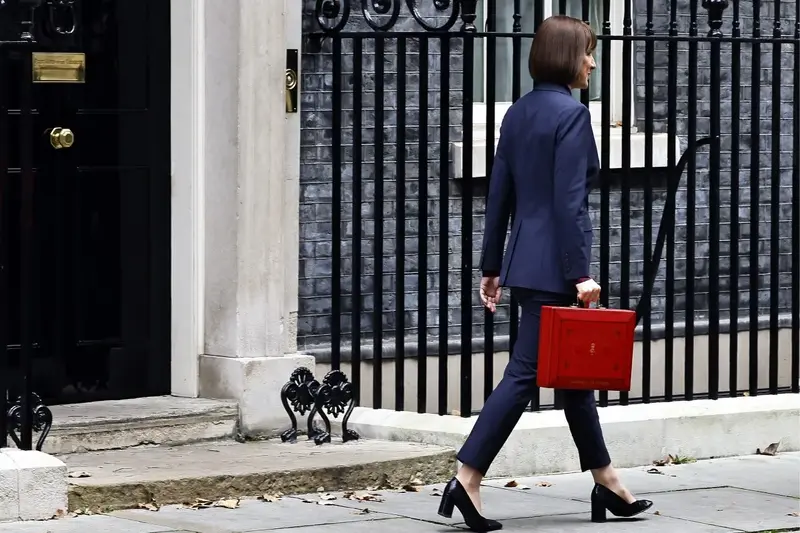Autumn Budget 2025 for HR, Payroll and Reward
 Amy Assad
Amy AssadRachel Reeves delivers £26bn tax raid with major implications for employee benefits and pensions

Chancellor Rachel Reeves delivered her second Budget on 26 November 2025, unveiling a £26 billion package of tax increases that will have significant ramifications for HR, payroll and reward strategies. The Budget introduced sweeping changes to salary sacrifice arrangements, income tax thresholds, and minimum wage rates that will reshape how employers structure compensation and benefits.
Salary Sacrifice: The £4.7bn Pension Raid
The Budget’s most significant change for reward professionals is the introduction of a £2,000 annual cap on National Insurance-efficient salary sacrifice pension contributions, effective from April 2029. Contributions above this threshold will attract standard NI rates of 8% for earnings up to £50,270 and 2% above that level.
The measure is expected to raise £4.7 billion annually. Currently, approximately 48% of UK private sector companies offer salary sacrifice pension schemes, rising to 67% at larger firms and 85% at the biggest employers.
Industry response has been overwhelmingly negative. Steve Hitchiner, Chair of the Tax Group at the Society of Pensions Professionals, called it a measure that would reduce pension saving at a critical time, while Samantha O’Sullivan, Policy and Advisory Lead at the CIPP, noted it would deter employees from saving while increasing employers’ National Insurance bills.
Nicholas Nesbitt, Private Client Partner at Forvis Mazars, highlighted the disproportionate impact on lower earners, who will pay higher NIC rates when saving for their future compared to higher earners. PensionBee’s Lisa Picardo warned that employers may switch to Relief at Source schemes, increasing complexity for individual savers who must claim higher-rate tax relief through self-assessment.
Zoe Alexander, Executive Director at Pensions UK, noted that over half of savers already fall short of retirement income targets, and restricting salary sacrifice will worsen the pension under-saving problem.
Income Tax Threshold Freeze Extended
The Chancellor extended the freeze on income tax thresholds for another three years until 2030/31, maintaining the basic-rate threshold at £12,570 and the higher-rate threshold at £50,270. This fiscal drag measure is expected to raise approximately £8 billion.
Becky O’Connor, Director of Public Affairs at PensionBee, described it as a measure that increases the tax burden without boosting take-home pay, while Natasha Letchford, Senior Associate at Wilsons Solicitors, warned that higher earners may request part-time work or turn down additional responsibilities as they fall into higher tax brackets.
Minimum Wage Increases Add Cost Pressure
While announced ahead of the Budget, the minimum wage increases effective April 2026 will significantly impact employers, particularly in hospitality and retail. The National Living Wage will rise 4.1% to £12.71 for those aged 21 and over, while 18-20 year-olds will see an 8.5% increase to £10.85 – marking 23.3% growth over two years as the government moves to align all adult workers on a single rate.
Dan Maimone, Head of Global Customer Experience at Harri, warned the changes will drive wage compression and require significant pay-structure redesign. Sheila Attwood, HR Insights and Data Expert at Brightmine, noted the rise lands notably above the 3% pay awards employers have budgeted for next year, putting extra pressure on already squeezed businesses that set pay based on affordability.
The CIPP’s Samantha O’Sullivan emphasised the burden on sectors with younger workforces, noting that while abolishing age bands creates equal opportunities, the lack of financial support to employers requires careful balancing.
Positive Changes and Other Measures
The Chancellor announced that apprenticeships for under-25s will be completely free for SMEs, removing a significant financial barrier. Paramita Chatterjee, Vice President at Cornerstone, welcomed the move given data showing lower-income workers receive far less AI and skills training than higher earners.
The two-child benefit cap will be scrapped from April 2026. Vikki Brownridge, CEO at StepChange, described this as an immediate way to lift hundreds of thousands of children out of poverty and reduce debt-related harm, particularly for single parents.
The Help to Save scheme will be expanded and made permanent, though StepChange noted only one in ten eligible people currently use it and called for auto-enrolment to improve take-up.
The annual allowance for cash ISAs will drop from £20,000 to £12,000 for under-65s, with the remaining £8,000 reserved for stocks and shares. Maike Currie, VP Personal Finance at PensionBee, criticised the change as over-engineering that risks penalising women, who hold more in cash ISAs than men.
Despite speculation about Insurance Premium Tax increases, no changes were announced. However, Ian Talbot, CEO at Healix Health, noted the broader cost pressures mean businesses are scrutinising whether health and wellbeing spend delivers value, predicting a shift toward healthcare trusts offering more flexibility than traditional private medical insurance.
What to Do Now
With implementation dates ranging from April 2026 to April 2029, reward professionals should act now to model the financial impact of salary sacrifice changes, review total reward strategies to identify alternative benefits, assess minimum wage impact on pay structures, and communicate changes clearly to employees.
Medium-term planning should include deciding whether to maintain salary sacrifice schemes or switch to Relief at Source, reviewing apprenticeship opportunities, evaluating healthcare benefit structures, and planning for increased employment costs.
As Natasha Letchford from Wilsons Solicitors summarised, while the Budget may not have been as bad as employers feared, the larger impact will come from minimum wage increases, potentially leading to reduced pay increases, halted recruitment, or redundancies. Success will require creative thinking and strategic planning to maintain competitive employee propositions while managing substantially increased costs.
